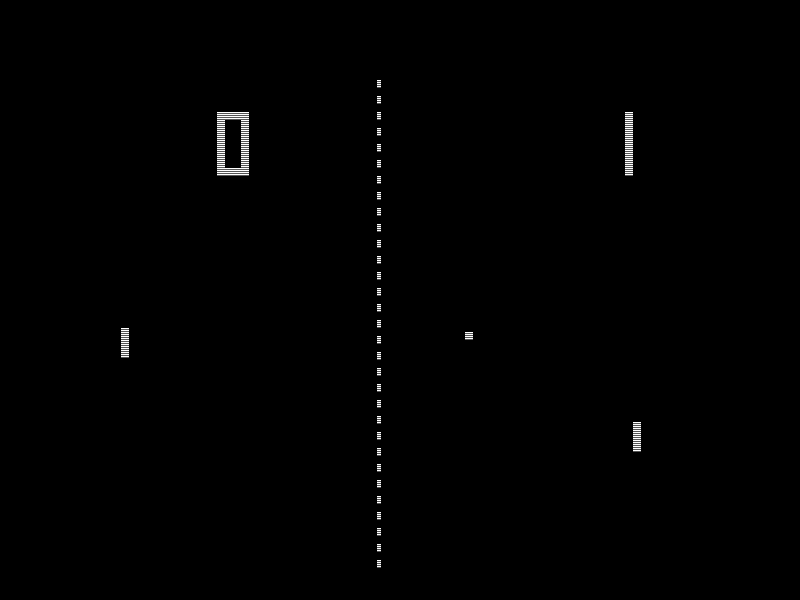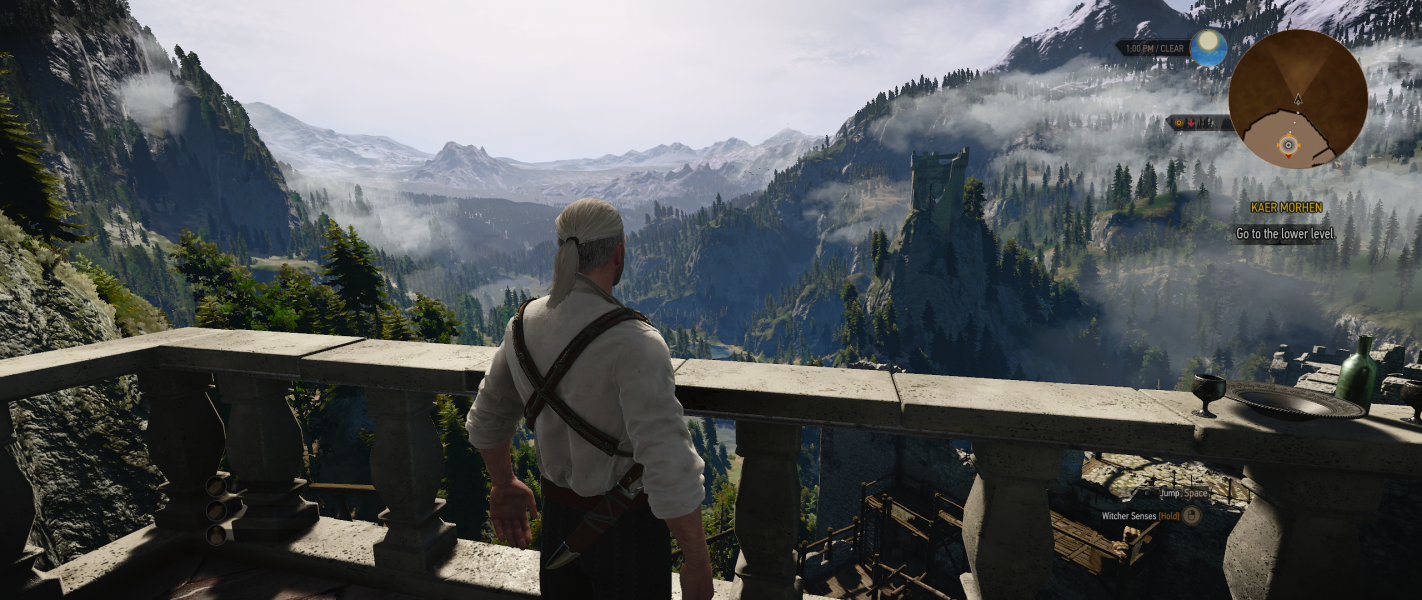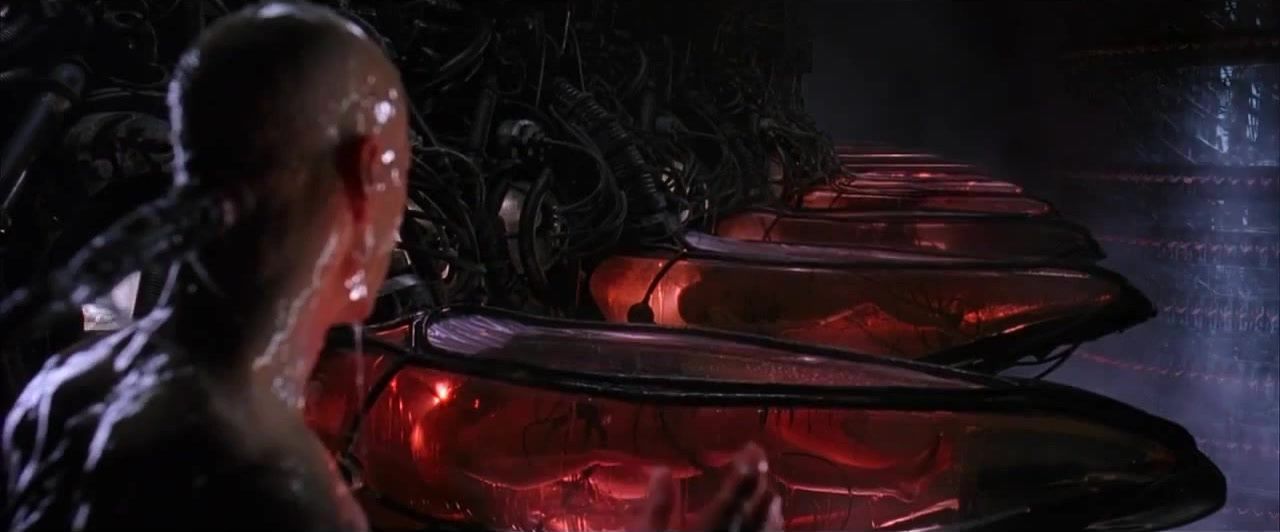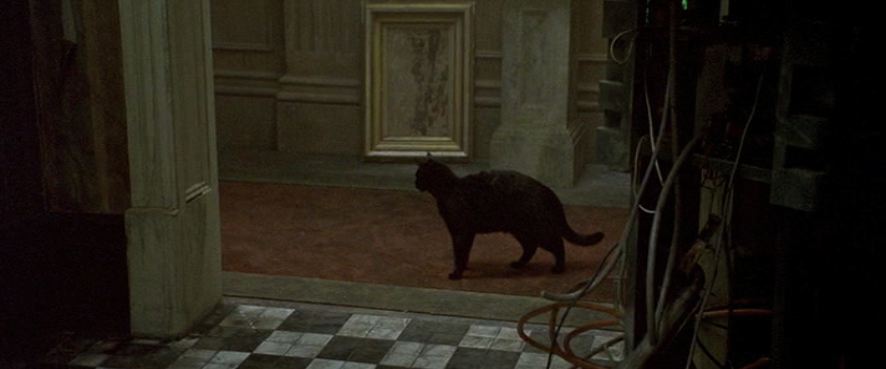
Nov 28
/
Benjamin Schumann
We (likely) don't live in a simulation, Elon Musk!
For the past 10 years, I built simulation models. Small and large. Complex and simple. Useful and … well. So I was intrigued to hear Elon Musk talk about my everyday work recently: “There's a billion to one chance we're living in base reality”, he said, showing he thinks we all live in a simulation. Awesome thought. But do we?
The argument
The story briefly goes as follows: Check out the video game Pong, released in 1972:

It is a super-simplified simulation game of tennis.
Today, 44 years later, we have massively advanced simulation games such as the awesome Witcher 3 (which I am currently actually playing), this is a real screenshot:

Obviously, something has improved here. According to Musk and other proponents of the “we live in a simulation” theory, even if we assume “any rate of improvement at all”, we will go to fully virtual reality games at some point. They will be so immersive, you cannot actually distinguish them from reality anymore. This might not happen in our lifetime. But what if it happens in the next 1000 years, an evolutionary blip for humanity?
Even if we reduce the rate of improvement of simulation quality by a factor of 10, 100 or 1000, we would, at some point, reach perfect simulations.
So, who is to say this hasn’t already happened and we all are part of a massive “online” simulation? Maybe, we all lie in buckets of nutrition solution and play, completely oblivious of the “base” reality around us, somewhat like the Matrix?

A logical flaw
All right, when I first heard this idea, I liked it. It is thought-provoking and mind-expanding, always worth a shot. But let me put on my simulation-modeller geek hat and give you a single piece of information that destroys the idea. Every modeller knows it by heart:
A simulation model is always a simplified version of reality.
There you have it. Whoever or whatever built our simulated world then, it would be a simplified model of his or her base reality. This is not only caused by the modeller’s abilities but also by computing power. To simulate our universe, you’d need more than the universe’s computing power.
Hence, base reality would be even more complex than the world we see around us. I am no expert, but science seems convinced that our reality is darn complex and very unlikely, anyway.
If base reality were even more complex, it would be even more unlikely to be around at all.
Ever progressing?
I have one more consideration to think about. The “we live in a simulation” argument contains a typical Silicon-Valley quasi-religious idea. It assumes that (simulation) technology will keep getting better. Specifically, graphics, virtual reality technology, etc. At some point, the program would, likely, link directly to your brain, including all senses. Super-advanced technology…
While this sounds sensible, especially if we allow not only decades but centuries or more, this is a classical fallacy. There are many examples from human history where development progress simply stalls based on physical limitations, with nobody predicting that beforehand. Some examples:
- Aircraft were supposed to get faster and faster. That worked up to the sound barrier. Although the Concorde made a great attempt, aircraft travel speeds are now constant (under the sound barrier) and unlikely to change in the near future.
- We still use metal containers driven by little explosions of some liquid we found in the earth, weighing 20 times as much as we do, to propel us on the ground. Cars haven’t gotten much faster than the past 60 years and their fuel usage is hitting the lower limit of what is possible. Even with battery cars and autonomous cars, we will always have traffic jams and not drive (much) faster than we do today.
- While Moore’s law of exponential growth in computing power has been very successful, it is breaking down. Nothing can keep growing exponentially in this universe forever. Hence, we will not be able to ever build a computer that can simulate the entire universe.
- The speed of light does not take lightly any attempt to outrace it.
Prove your claim: Glitches in the matrix?
Another interesting perspective on the matter is offered by some scientists who have thought about this much longer and deeper than I have. They take the hypothesis and think about how it could be proven that we live in a simulation.
MIT professor Max Tegmark argues that if you model the entire universe, it would be tempting to “cut corners in ways that make the simulation cheaper to run”. We could look for those shortcuts in our universe. Would you fully model the vast empty stretches of the universe or just paint them black? This could be likened to that cat appearing twice in the Matrix, essentially a bug.

Now, I am no expert but I cannot think of any shortcuts or bugs that could qualify here. Wherever science looks, be it the deep stretches of the universe or subatomic “stuff”, we always see more details and complexity. Even if some features of our universe could qualify as shortcuts, a big claim like the “simulation” hypothesis would need big evidence before being accepted.
Theoretical physicist Brian Greene offers another good point on why looking for glitches might be pointless: If you build a simulation as complex as our universe, surely you’d be able to self-repair any bugs that are spotted by its inhabitants and re-wire their brains to “forget” the incident. On the other hand, this probably inspires millions of conspiracy theorists to clap their hands and say “I knew it” because their brains haven’t been wiped entirely after that alien abduction…
Verdict
I love the idea and I love the fact that simulations are brought to light by someone as intelligent and noteworthy as Elon Musk. However, there are some interesting philosophical counterpoints. But if it is true and we all just play in a simulation game: I salute all those playing in “difficult” mode: minorities and the otherwise oppressed.
So what are your thoughts? Could we ever know?
